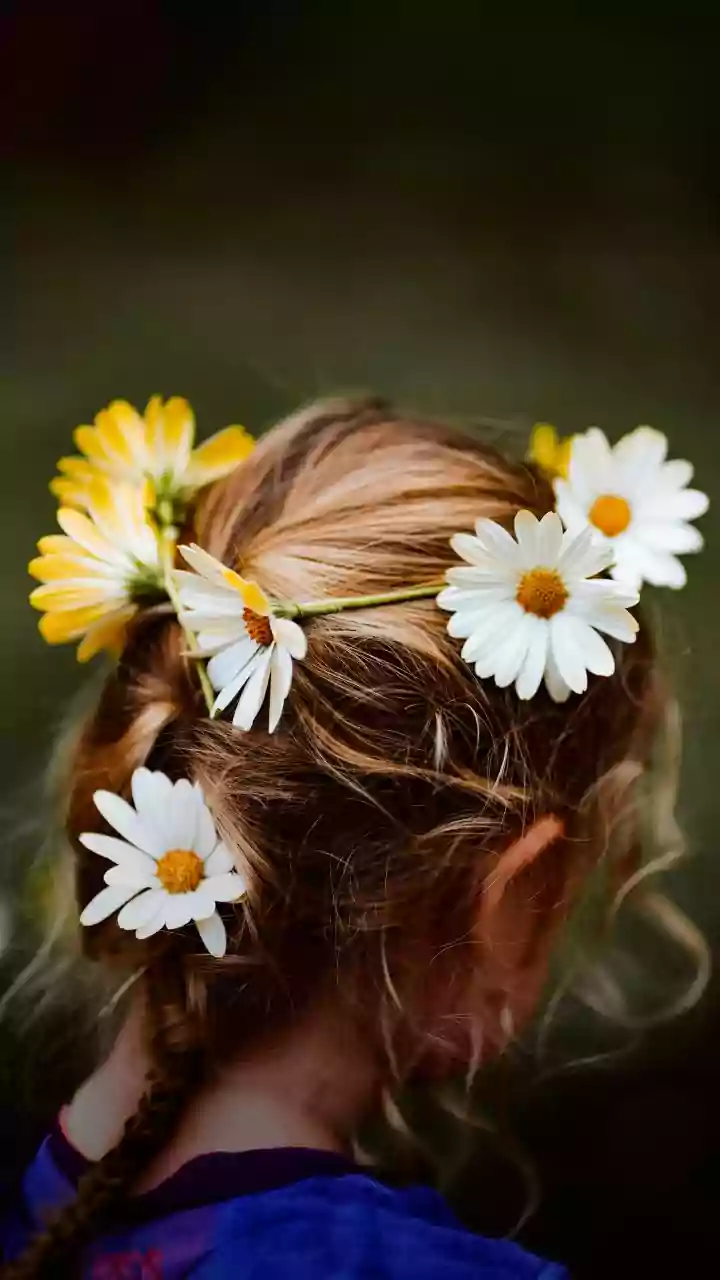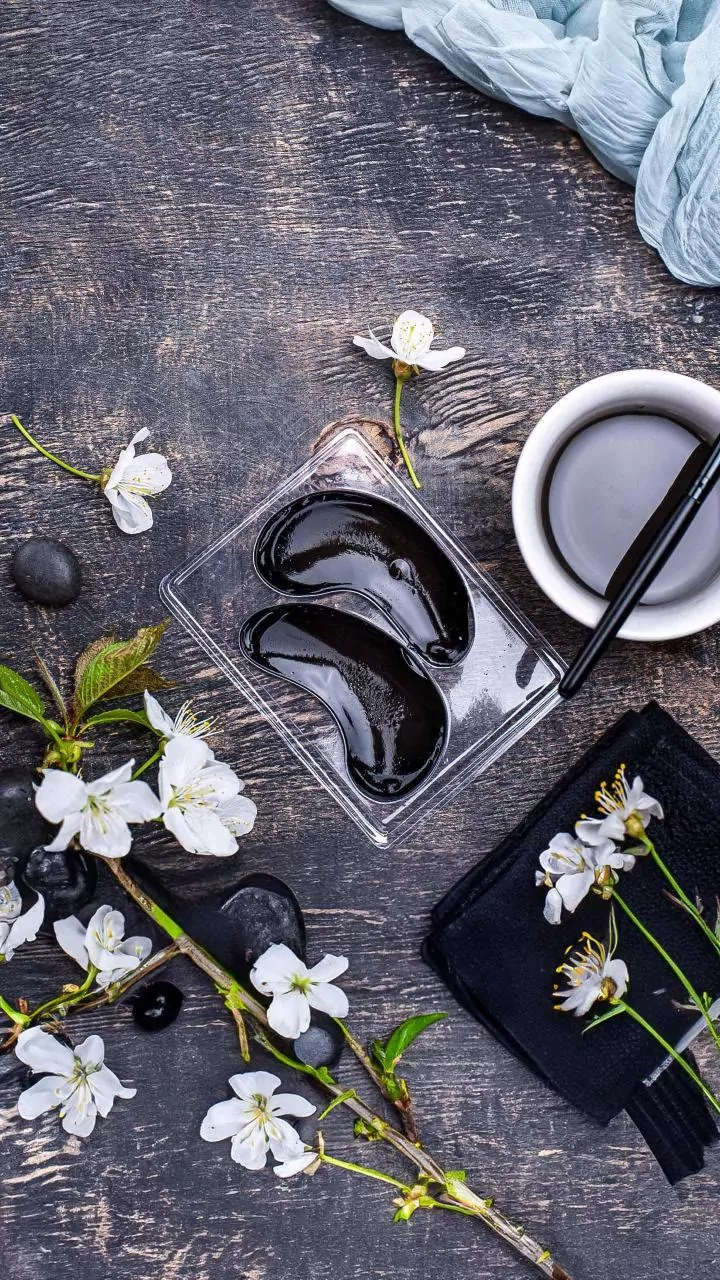Discover the secrets to healthy hair in India's changing seasons. From combating summer sun to taming monsoon frizz and winter dryness, this guide offers practical tips and natural remedies for lustrous
locks all year round. Embrace the power of seasonal hair care and unlock the beauty of your tresses!
Hair Today, Healthy Tomorrow: Your Guide to Seasonal Hair Care in India

Maintain healthy hair through seasonal changes with practical tips and tricks
India, with its diverse climates ranging from scorching summers to chilly winters and humid monsoons, presents a unique challenge for maintaining healthy hair. Just as we adjust our wardrobes, our hair care routine also needs tweaking with each changing season.
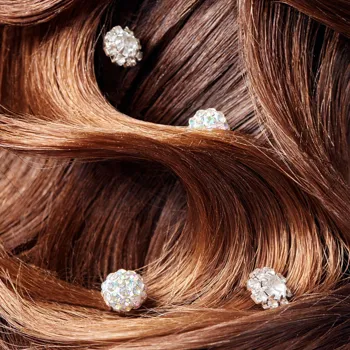
Ignoring these seasonal shifts can lead to a host of hair problems, from dryness and frizz to dandruff and hair fall. Fear not! This guide offers practical tips and tricks, using readily available ingredients and age-old wisdom, to keep your tresses looking their best, no matter the weather.
Get ready to embrace the seasonal changes with a proactive hair care plan and say hello to healthy, lustrous locks all year round.
Summer hair care: combat heat, humidity with hydration, protection
Summer in India brings with it intense heat, humidity, and relentless sun exposure, all of which can wreak havoc on your hair. The scorching sun can dry out your hair, making it brittle and prone to breakage.
Furthermore, the humidity can cause excessive sweating on the scalp, leading to oiliness and a buildup of dirt and grime. This, in turn, can clog hair follicles and contribute to dandruff and hair fall.
To combat these summer woes, it's essential to adopt a hair care routine that focuses on hydration, protection, and gentle cleansing. Think of light, nourishing products and practices that shield your hair from the harsh elements.
Protect hair from sun, hydrate with water and masks for shine
To begin with, shielding your hair from direct sunlight is crucial. Whenever stepping out, consider donning a scarf, hat, or umbrella to minimize UV exposure. This simple step can significantly reduce dryness and prevent color fading, especially if you have colored hair.
Hydration is also key during summer. Drink plenty of water throughout the day to keep your body, and consequently your hair, hydrated from within. Incorporate hydrating hair masks into your routine.
A simple DIY mask made with aloe vera gel and honey can work wonders in restoring moisture and shine. Aloe vera is known for its soothing and hydrating properties, while honey acts as a natural humectant, drawing moisture from the air into your hair.
Choose sulfate-free shampoo to avoid dryness; use gentle conditioner
Another essential step is to choose a mild, sulfate-free shampoo for cleansing your hair. Sulfate-based shampoos, while effective at removing dirt and oil, can also strip your hair of its natural oils, leaving it dry and brittle.
Opt for a gentle, sulfate-free formula that cleanses without over-drying. Avoid frequent shampooing, as this can further exacerbate dryness. Two to three times a week is usually sufficient. After shampooing, always use a lightweight conditioner to detangle your hair and seal in moisture.
Leave-in conditioners are also a great option for providing extra hydration throughout the day. Look for leave-in conditioners that contain natural ingredients like shea butter or coconut oil, which are known for their moisturizing properties.
Furthermore, avoid excessive heat styling during summer. Heat from hair dryers, straightening irons, and curling wands can further damage dry and brittle hair. If you must use heat styling tools, always apply a heat protectant serum beforehand.
Monsoon in India poses hair care challenges due to frizz and fungal infections
The monsoon season in India brings respite from the summer heat, but it also introduces its own set of hair care challenges. The high humidity levels during monsoon create the perfect environment for frizz, making your hair look unruly and unmanageable.
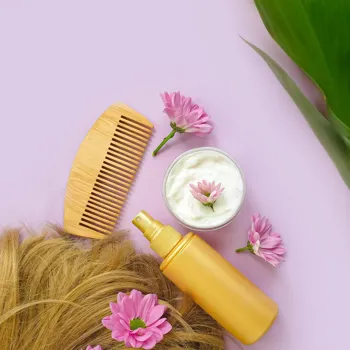
Moreover, the dampness can lead to fungal infections on the scalp, resulting in dandruff, itching, and hair fall. Therefore, the focus during monsoon should be on controlling frizz, maintaining scalp hygiene, and preventing fungal growth.
A little extra care can go a long way in keeping your hair healthy and happy during this damp season. The humidity during monsoon causes hair to absorb moisture from the air, leading to swelling and frizz.
Combat frizz with serums, wide-toothed comb, and suitable haircut
To combat this, consider using anti-frizz serums or creams. These products coat the hair shaft, preventing moisture from entering and thus reducing frizz. Look for serums that contain silicones or natural oils like argan oil or jojoba oil.
However, be careful not to overuse these products, as they can weigh down your hair and make it look greasy. Another effective way to control frizz is to use a wide-toothed comb to detangle your hair while it's still damp.
Avoid using brushes, as they can disrupt the hair's natural curl pattern and exacerbate frizz. Furthermore, consider getting a haircut that suits your hair type and texture. Layered haircuts can help to reduce bulk and prevent frizz.
Maintain scalp hygiene in monsoon to prevent fungal infections
Maintaining scalp hygiene is crucial during monsoon to prevent fungal infections. Wash your hair regularly to remove sweat, dirt, and grime. Use an anti-fungal shampoo once or twice a week to prevent the growth of fungi on the scalp.
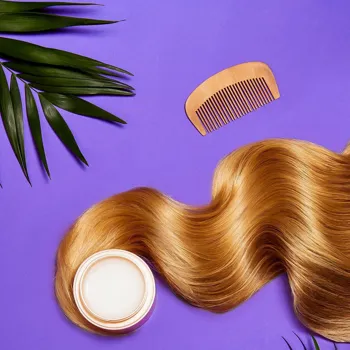
Look for shampoos that contain ingredients like ketoconazole or selenium sulfide. Make sure to rinse your hair thoroughly after shampooing to remove all traces of product. After washing your hair, dry it completely to prevent fungal growth.
Use a microfiber towel to gently blot your hair dry, rather than rubbing it vigorously. You can also use a hair dryer on a low heat setting to dry your hair, but be sure to use a heat protectant serum beforehand.
Combat winter hair dryness with hydration, nourishment, and protection
Winter in India can be quite harsh, especially in the northern regions, bringing with it dry air that saps moisture from your hair and scalp. This dryness can lead to brittle hair, split ends, dandruff, and an itchy scalp.

To combat these winter woes, it's essential to focus on hydration, nourishment, and protection. Think of rich, moisturizing products and practices that replenish moisture and protect your hair from the dry winter air.
Keeping hydrate is the key, remember, drinking water is also of utmost importance.
Deep conditioning essential for winter hair care
Deep conditioning is your best friend during winter. Use a deep conditioning mask at least once a week to replenish moisture and nourish your hair. Look for masks that contain ingredients like shea butter, coconut oil, olive oil, or honey.

These ingredients are known for their moisturizing and nourishing properties. You can also make your own DIY deep conditioning mask using ingredients readily available in your kitchen. A simple mask made with mashed avocado, banana, and honey can work wonders in restoring moisture and shine.
Application is key to using DIYs.
Winter oil massages nourish hair and prevent dryness
Oil massages can also be incredibly beneficial during winter. Warm some coconut oil, almond oil, or olive oil and gently massage it into your scalp. This will help to improve blood circulation, nourish your hair follicles, and prevent dryness.
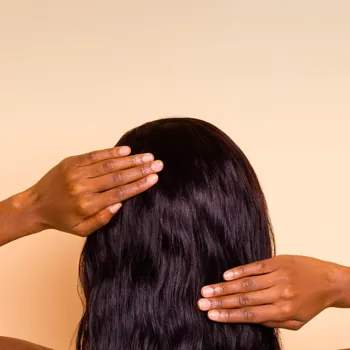
Leave the oil on for at least an hour, or even overnight, before washing it off with a mild shampoo. Avoid using hot water to wash your hair, as this can further dry it out. Use lukewarm water instead. And consider protecting your hair when stepping outside.
Autumn in India: Crucial hair repair and prep for winter
The autumn season in India, often overlooked in hair care discussions, is a crucial time for repair and rejuvenation. After enduring the harshness of summer and the dampness of monsoon, your hair needs some serious TLC to recover its health and vitality.
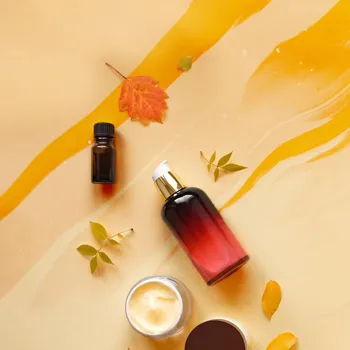
Focus on repairing any damage caused by the previous seasons, strengthening your hair strands, and preparing it for the upcoming winter. With the transition from monsoon to winter, autumn is a time of balance and preparation for your hair as well.
Autumn is a crucial time to give your hair the care it needs after the past seasons.
Trim hair regularly, use protein treatments for strong, healthy hair
Hair trimming is an essential step in repairing damaged hair. Get rid of split ends and damaged hair strands to prevent further breakage and promote healthy hair growth. A trim every six to eight weeks is generally recommended.
Protein treatments can help to strengthen your hair and repair any damage caused by heat styling, chemical treatments, or environmental factors. Look for protein-rich hair masks or treatments that contain ingredients like keratin, collagen, or silk amino acids.
These ingredients help to rebuild the hair's protein structure, making it stronger and more resistant to damage.
Scalp exfoliation in autumn for healthy hair growth. Balanced diet essential
Scalp exfoliation is also important during autumn to remove dead skin cells and product buildup from the scalp. This will help to improve blood circulation and promote healthy hair growth. You can use a scalp scrub or a gentle exfoliating brush to massage your scalp.
Avoid harsh scrubs that can irritate your scalp. And incorporate a balanced diet into your health journey. Make sure you're getting enough protein, vitamins, and minerals in your diet to support healthy hair growth.
Include foods like eggs, nuts, seeds, green leafy vegetables, and fruits in your diet.
Embrace natural ingredients for effective hair care at home
While store-bought products can be effective, nothing beats the goodness of natural ingredients when it comes to hair care. India has a rich tradition of using herbs, oils, and other natural remedies for promoting hair health, passed down through generations.

These remedies are not only gentle and effective but also readily available and affordable. Embrace the power of your kitchen and garden to create customized hair care solutions that cater to your specific needs and seasonal challenges.
Hibiscus flowers boost hair health; shikakai cleanses gently
For example, a simple hair rinse made with hibiscus flowers can work wonders in promoting hair growth and preventing dandruff. Hibiscus flowers are rich in vitamin C and amino acids, which help to strengthen hair follicles and improve scalp health.
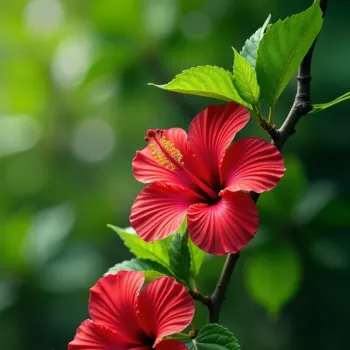
To make the rinse, boil a handful of hibiscus flowers in water for about 10 minutes. Let the mixture cool and then strain it. Use the liquid to rinse your hair after shampooing. Another popular remedy is shikakai, a natural cleanser that has been used in India for centuries.
It gently cleanses the hair without stripping it of its natural oils, leaving it soft and manageable. You can find shikakai powder in most Indian grocery stores. Mix the powder with water to form a paste and use it as a shampoo.
Amla and fenugreek promote hair growth and prevent hair fall
Amla, also known as Indian gooseberry, is another powerhouse ingredient for hair care. It's rich in vitamin C and antioxidants, which help to strengthen hair follicles, prevent premature graying, and promote hair growth. You can use amla oil to massage your scalp or consume amla juice regularly.
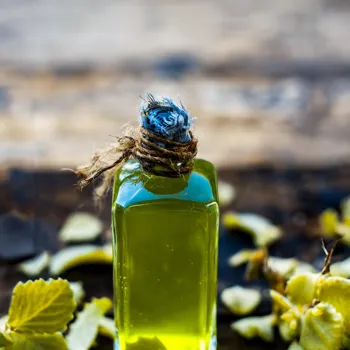
And remember fenugreek seeds which can be used to make a hair mask that promotes hair growth and prevents hair fall. Soak a handful of fenugreek seeds overnight and grind them into a paste. Apply the paste to your scalp and leave it on for about 30 minutes before washing it off.
Maintain healthy hair in India with seasonal care and natural ingredients
Maintaining healthy hair throughout the year in India requires a proactive and adaptable approach.
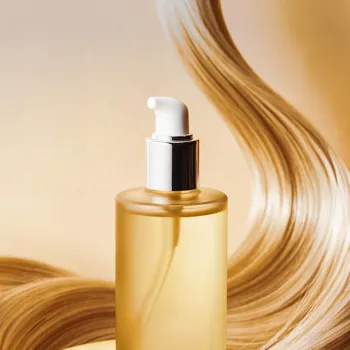
By understanding the unique challenges posed by each season and tailoring your hair care routine accordingly, you can ensure that your tresses remain healthy, strong, and beautiful, no matter the weather.
Embrace the power of natural ingredients, age-old wisdom, and a consistent hair care regimen to achieve your hair goals and flaunt gorgeous locks all year round. Remember, healthy hair is not just about aesthetics; it's a reflection of your overall health and well-being.
So, take care of your hair, and it will take care of you!

